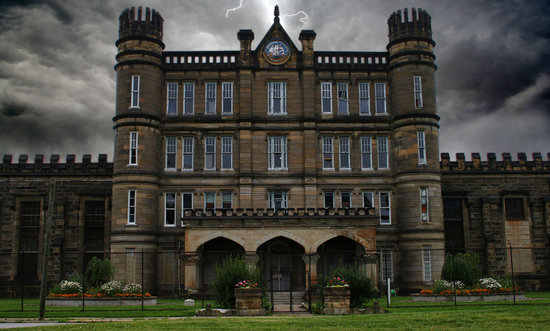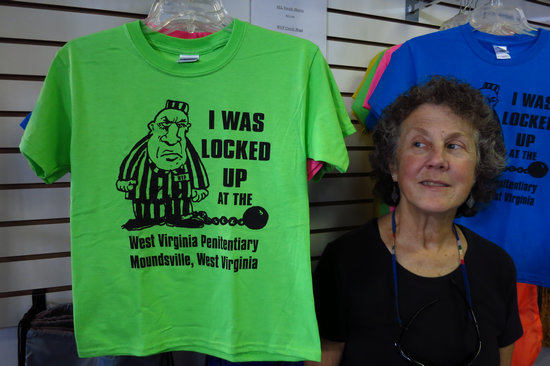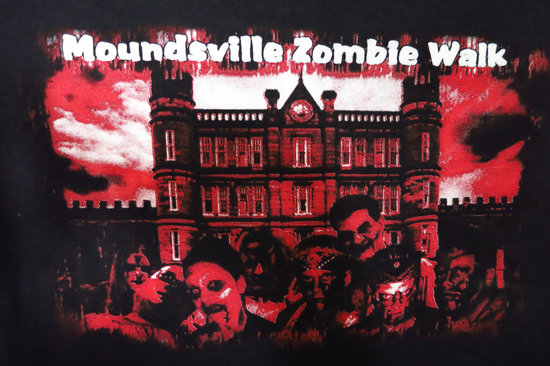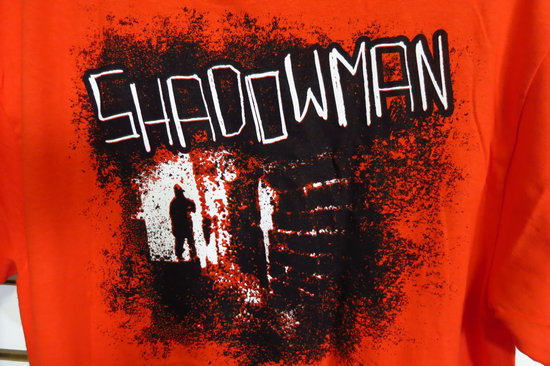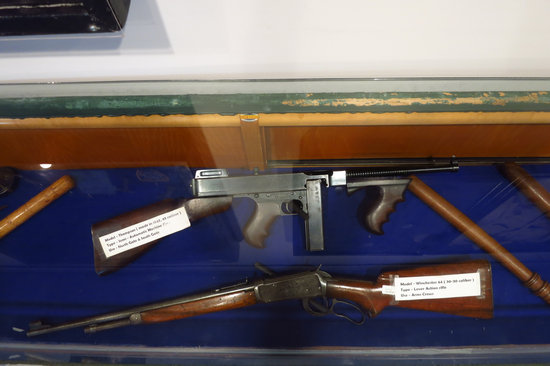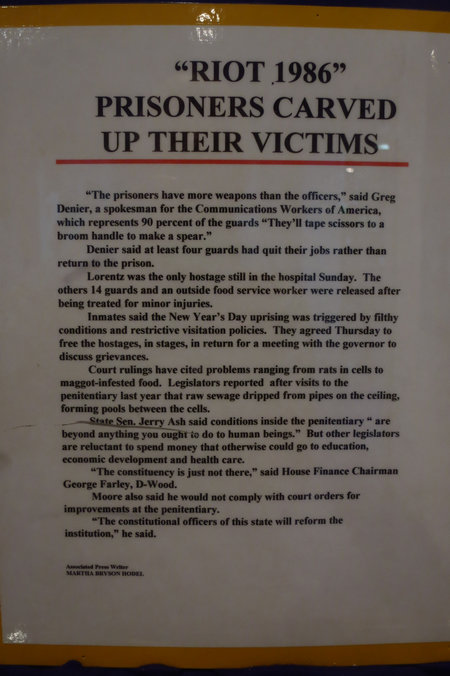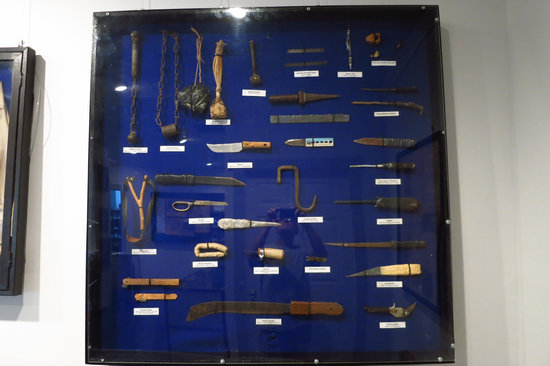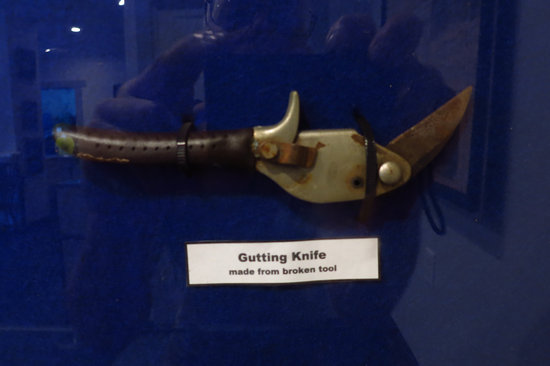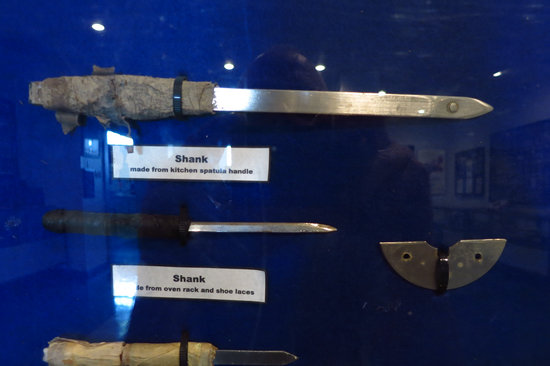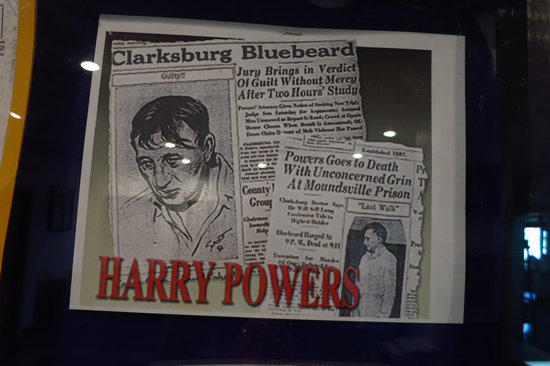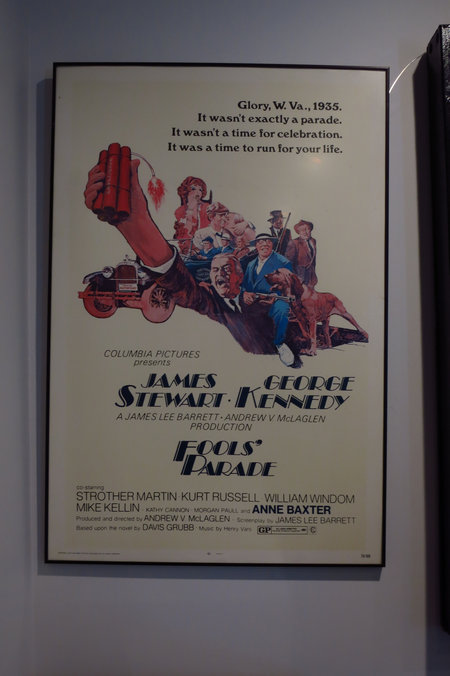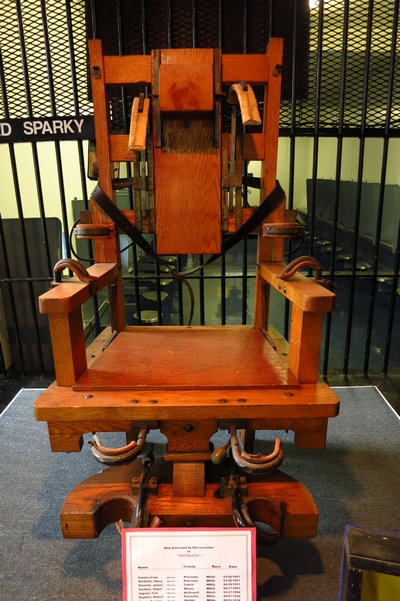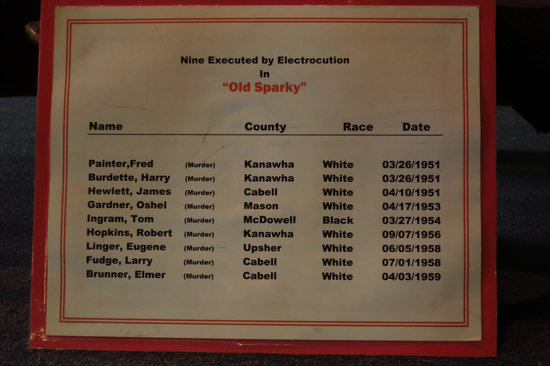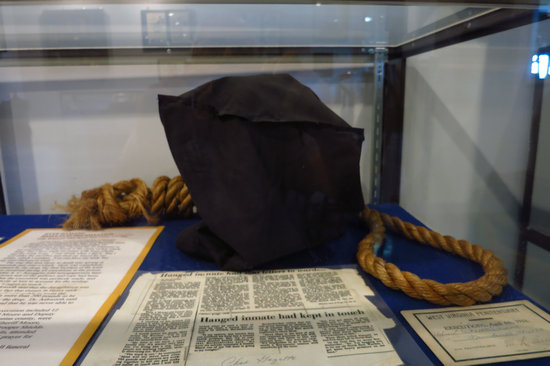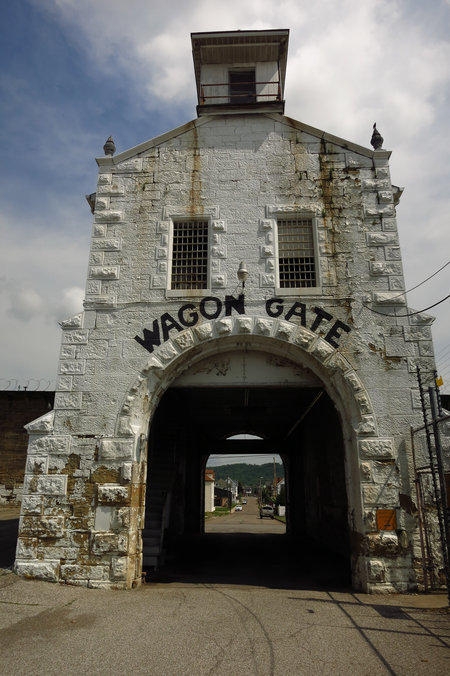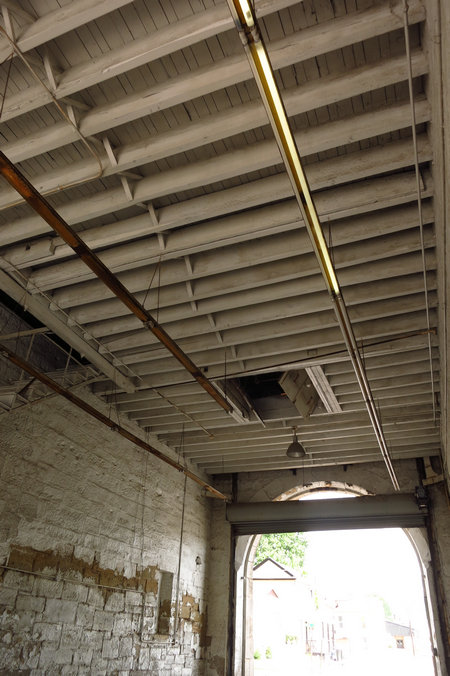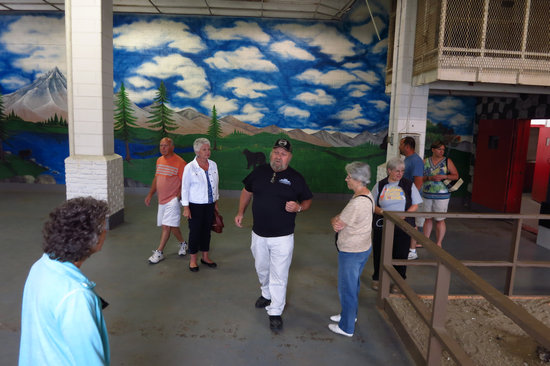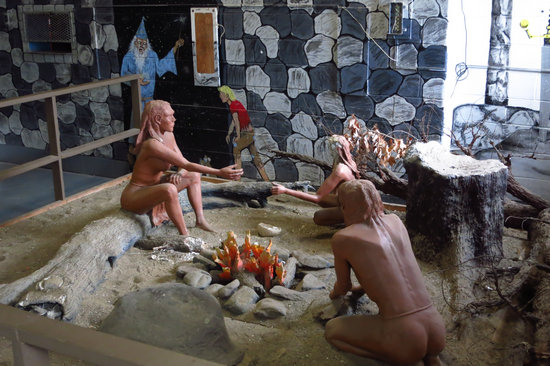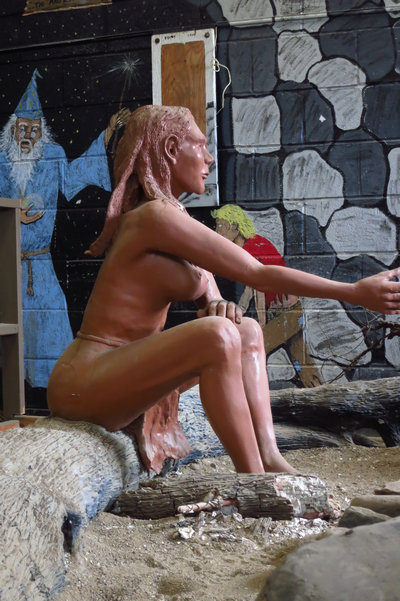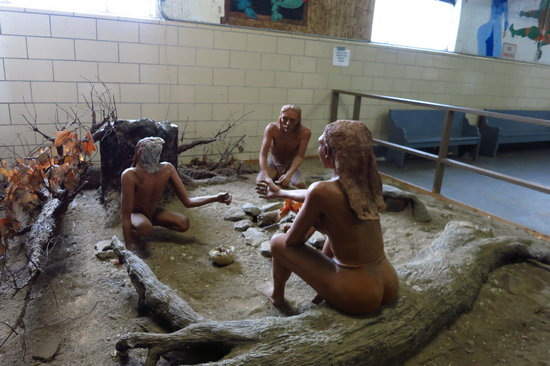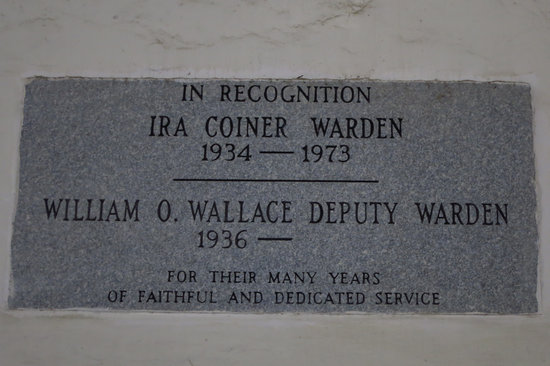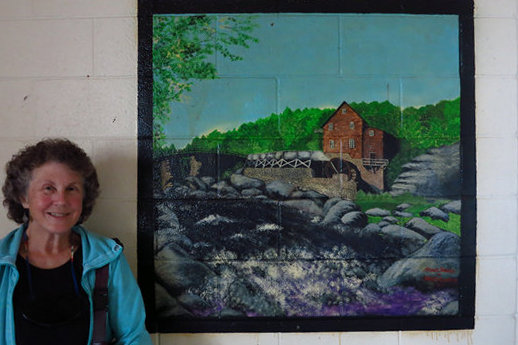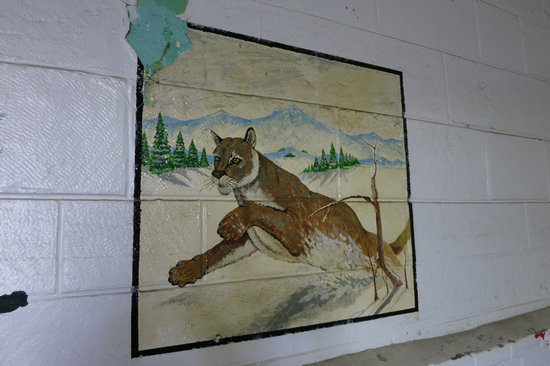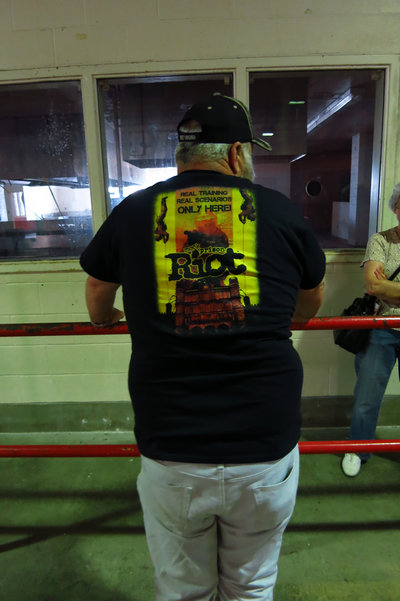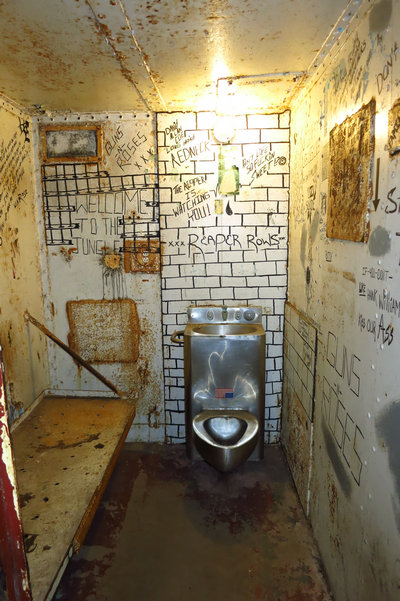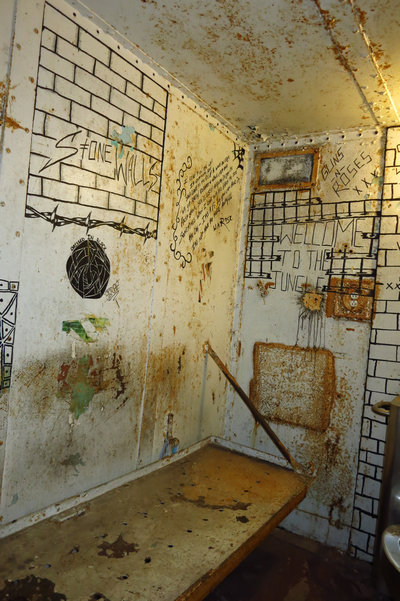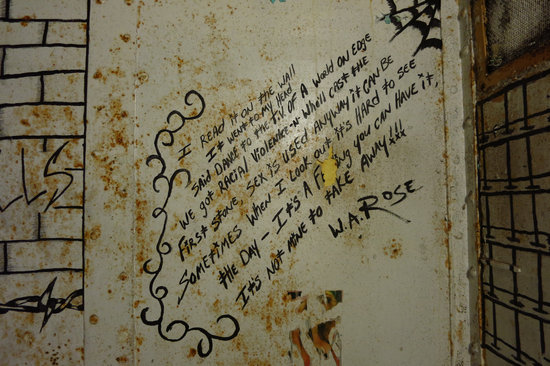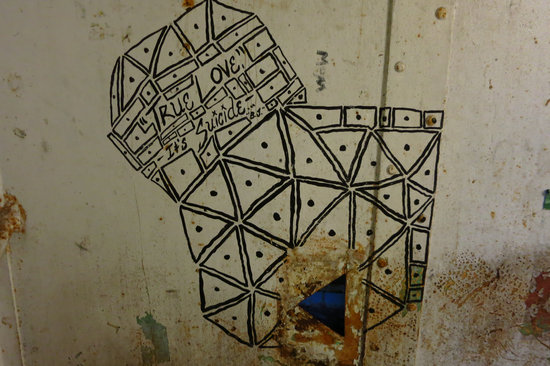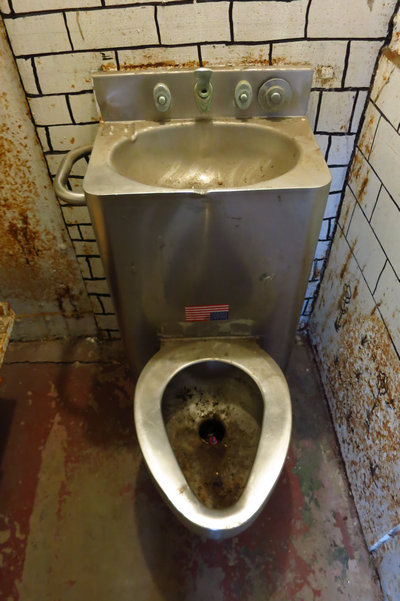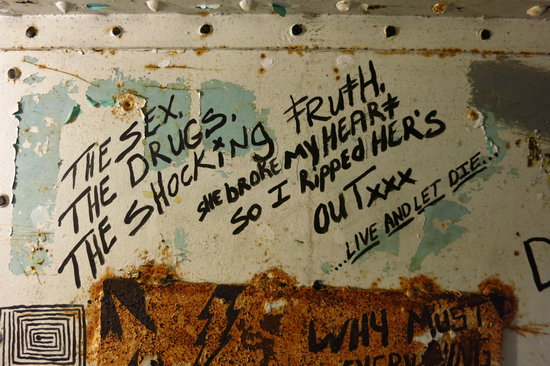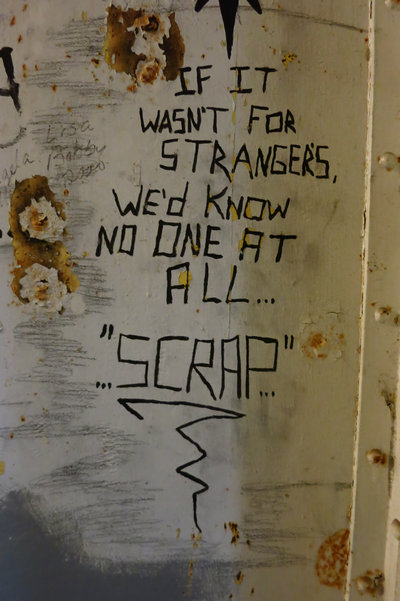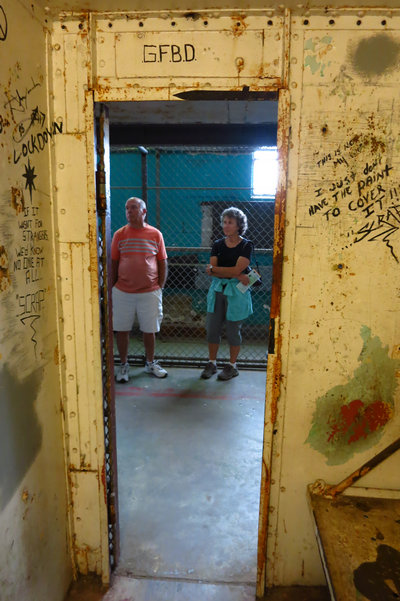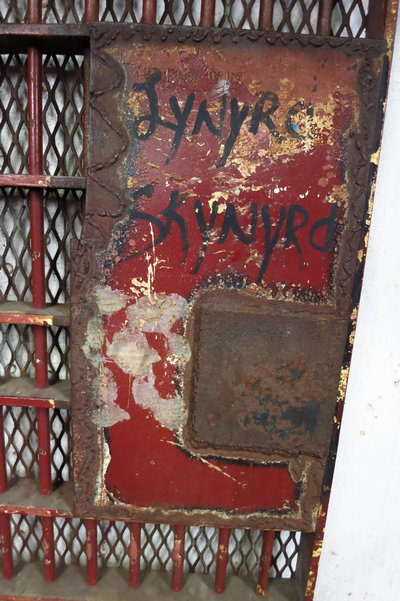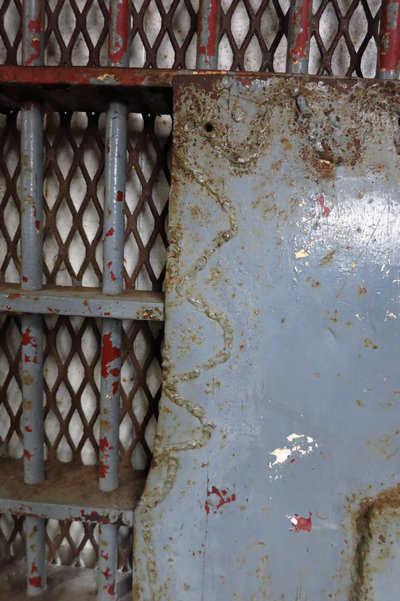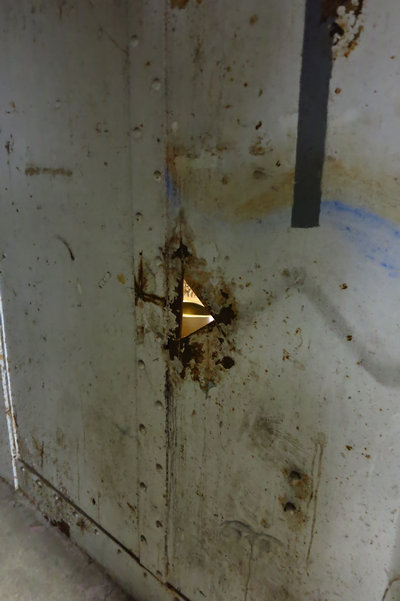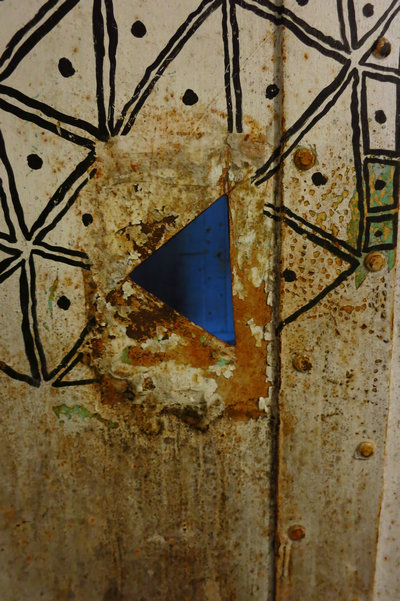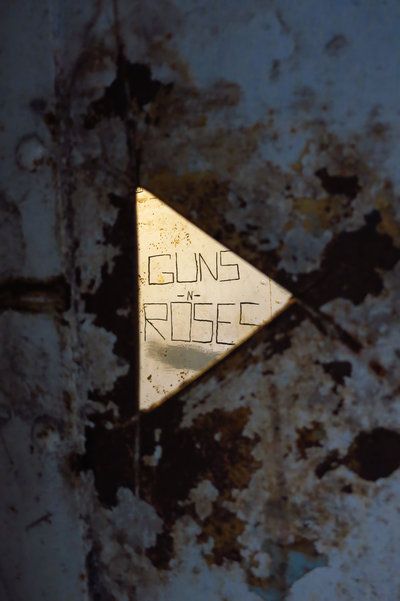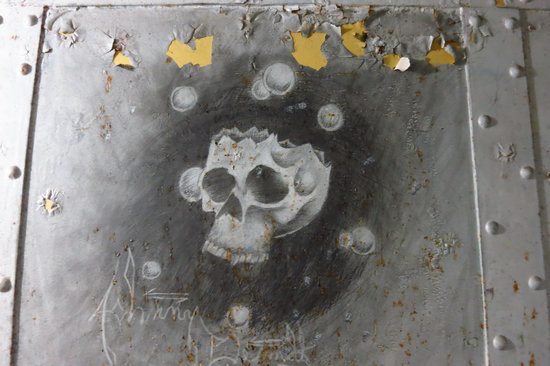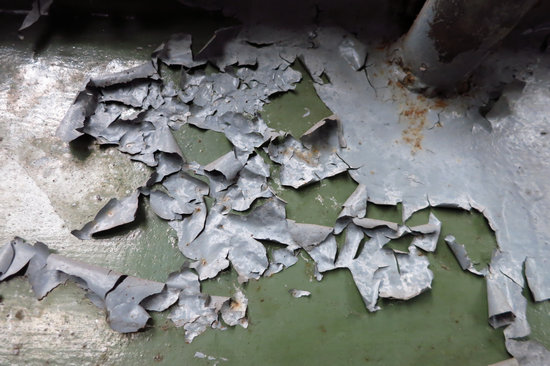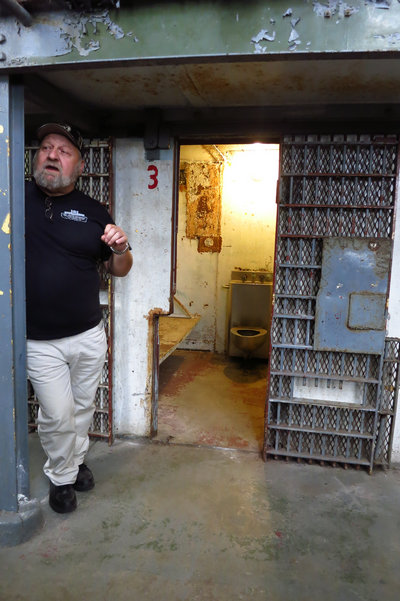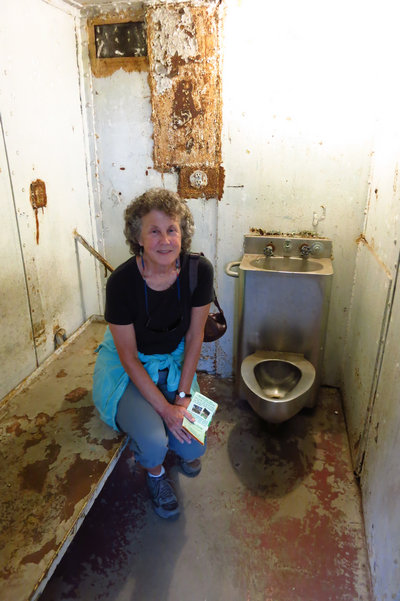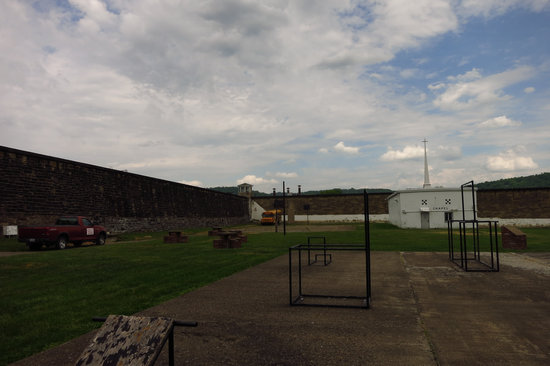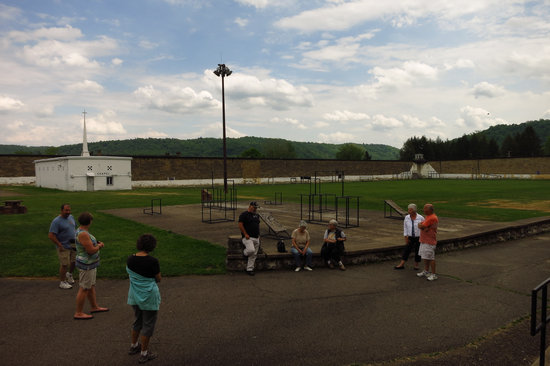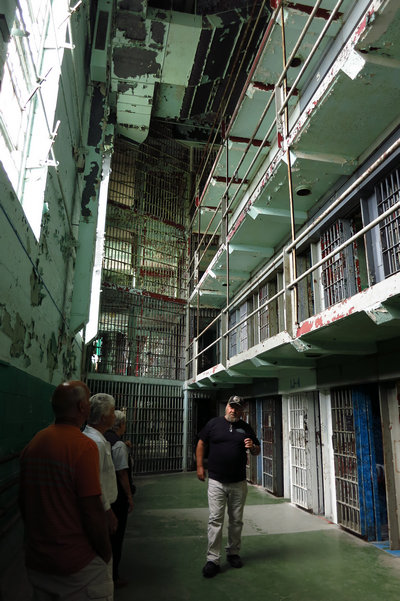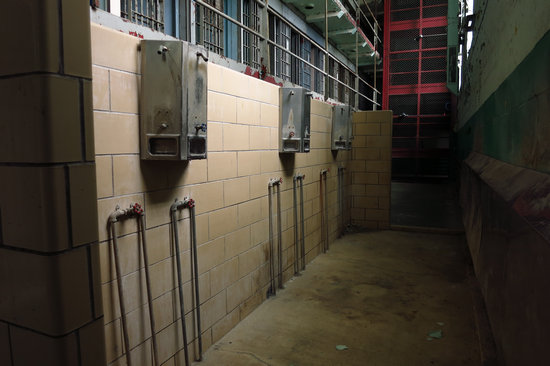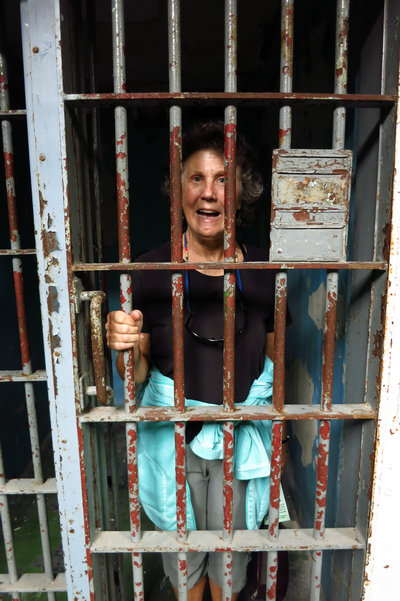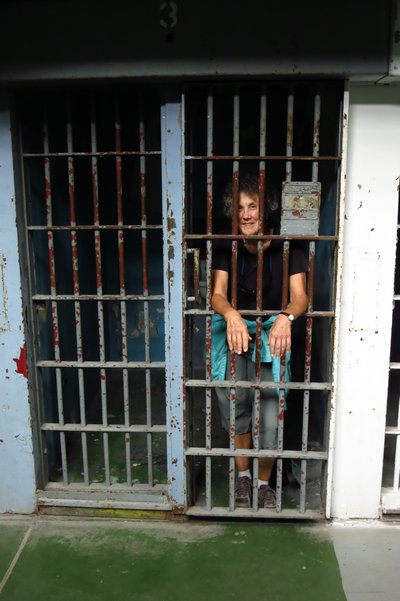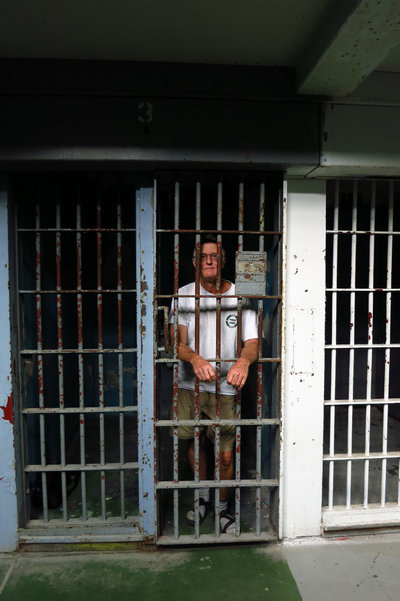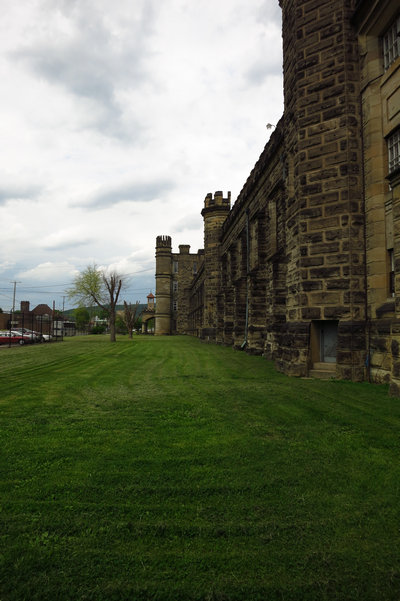Mike and Betsy Tick Off Another One!
Mike and Betsy Do 33 Years of Hard Time
A Special Treat for a Special Day.
15 May 2015:
Mike and Betsy do 33 Years of Hard Time
Every year it gets a little bit trickier to think of some new and original way to celebrate our Wedding Anniversary. On top of that it has been busy, preoccupying and a bit exhausting getting our house organized and getting settled here in Wheeling. And by the time I got around to thinking about it, nothing seemed to gel. My on the spur of the moment plan - an overnight at the Tygart Lake State Park Lodge bore no fruit - they were full up. Thus is the price of procrastination.
But when Betsy told me she had completely forgotten our Anniversary was coming up I did not feel so bad.
We both let it drop and then Betsy had a Brain Storm. "Let's got to prison!" she said. And so we did...
Photo © 2015 Midwest Haunters Convention
* Construction on the State Penitentiary at Moundsville began in 1866 with labor being provided by inmates. When completed, the total cost was of $363,061.
* The stone walls are 5 feet thick at the base, tapering to 2.5 feet at the top.
* The first execution took place in 1899. From 1899 to 1959, ninety-four men were executed.
* In the 1960s, the prison reached a peak population of about 2,000 inmates. The number declined to 600 – 700 inmates by 1995, what it was originally designed to house.
* In total, thirty-six homicides took place in the prison.
The now closed Moundsville Penitentiary is just 20 minutes down the road from our place in Wheeling. Now a tourist attraction for general prison tours, haunted tours and the every popular Zombie Walk as well as the Mock Prison Riot. The latter is a law enforcement training exercise. A haunted attraction called the "Dungeon of Horrors" is also set up for the Halloween season. So the old place is being re purposed to the max which has almost certainly saved it from the wrecking ball.
Click on the photos below for a larger image.
The souvenir shop has t-shirts, fridge magnets and other trinkets to help you remember your visit.
Zombie Nation
The Moundsville Zombie Prison Break and 5K Run/Walk benefits the Moundsville Lions Club Sight Program.
Paranormal groups and enthusiast travel guides consider Moundsville Prison to be one of the most haunted prisons in the United States, with ghost stories originating as early as the 1930s. Legends include the prison occupying the site of a Native American burial ground. Reports include former guards seeing phantom inmates and a "shadow man" wandering the premises, as well as unexplained noises, voices, and cold spots
Source: WikiPedia
If you want to see what is claimed to be an original photo of the "Shadow Man" you can view it here.
Just inside the main entrance is the "non contact" visiting area. At one time there were simple grates which allowed the visitor and inmate to communicate. These were later changed to a handset system to allow for more privacy.
There is a small museum of prison artifacts which allows some insight as to what life in this hell hole must have been like.
The "Tommy gun" shown here is a 45 caliber submachine gun and the always handy 12 guage shot gun. These would certainly make an inmate think twice about getting out of line.
"The prisoners have more weapons than the officers."
Here are a sampling of those weapons.
This is just one of the display cases that contain various kinds of shanks.
"Head chopper"
This was made from a broken pair of pruning shears used in the prison gardens.
Some of the shanks were long and narrow. You will see why later on.
One of the Moundsville penitentiary's more famous inmates.
Harry F. Powers (born Herman Drenth; 1892 – March 18, 1932) — also known as Cornelius O. Pierson and A. R. Weaver — was a convicted serial killer who was hanged in Moundsville, West Virginia, USA.
Powers lured his victims through "Lonely Hearts" ads, claiming he was looking for love, but in reality murdered them for their money. Davis Grubb's 1953 novel Night of the Hunter and its 1955 film adaptation were based on these crimes.[1] Jayne Anne Phillips's novel Quiet Dell (2013) examined the Powers case anew.
Source: WikiPedia
Based on a book of the same name by Davis Grubb, "Fools' Parade" was filmed almost entirely in Moundsville.
Fools' Parade is a 1971 crime drama film directed by Andrew McLaglen, and stars James Stewart, George Kennedy, Kurt Russell and Strother Martin. It was based on the novel of the same name by Davis Grubb. The film is also known as Dynamite Man from Glory Jail.
In 1935, murderer Mattie Appleyard, bank robber Lee Cottrill, and young Johnny Jesus are released from the West Virginia State Penitentiary, located in the fictional town of Glory. Appleyard is issued a check for $25,452.32 for his 40 years of prison work, an enormous amount in the Great Depression.
Source: WikiPedia
The 2013 movie "Out of the Furnace" was filmed at the Moundsville Penitentiary.
We had a couple more items to look at in the museum before our tour started.
Meet "Old Sparky". Nine inmates came to their shocking end by sitting in this chair.
An inmate electrician who had gone to Columbus OH and made sketches of their chair built this one upon his return. This did not make him very popular with the other inmates.
Hanging was another method of execution at the Moundsville Pen and most considered it more humane than the herky-jerky frying of a human with high voltage.
As in Europe and England, hangings were a public spectacle and entire families would organize travel and enjoy picnics while waiting for the main event.
At one such event an improperly placed noose caused the decapitation of the inmate and his head rolled right over to the feet of some of the spectators.
After that grisly bit of fun, it was declared this circus like event would come to an end and all hangings would be inside the prison walls. But the public must have their entertainment and vindication!! And the viewings continued.
This hood and noose was used in the hanging process.
Let's take a peek ahead at part of the tour to learn more about hangings here at the Moundsville penitentiary.
This is the north gate of the prison. The area behind the window grates was a storage area for deceased inmates kept for pickup by relatives after they were hung. They were hauled up by ropes through a double door in the ceiling
But one has to wonder why the casket doors would drop down for hauling them up to the storage area.
Perhaps this is the reason. No one can verify hangings took place here and the noose is a prop.
Here we are at the contact visitation room. All the artwork was done by inmates.
In the center is seen our guide Chuck. He was a career corrections officer and spent 9 years at the Moundsville Pen. He had some very disturbing stories and observations to share with us about life in the "Big House".
Here there was no pretense at "rehabilitation". It was all about incarceration, isolation and punishment. Here torture was routine and a part of daily life.
This interesting diorama of early Indian life was made by prisoners and originally on display across the street at the Grave Creek Mound.
But there were some complaints about the nudity so it was moved back to the Pen and put it the contact visitation area.
I think this prison artist had a very vivid imagination, don't you?
Note the child's face is missing. Apparently on one of the mock prison riots one of the participants, a US Marine, thought it would be fun to blow the kid's face off. Chuck told us the shit hit the fan when his CO found out.
Here is a snippet from a 1971 newspaper article in which Coiner was interviewed.

There is prisoner artwork placed all over the pen.
photo0000038.jpg
Chuck, our tour guide was sporting a Mock Prison Riot t-shirt. This was taken in the mess hall.
Home, Sweet Home
At one time these 5x7 cells housed 3 inmates each. This meant one of the "beds" was on the floor and only inches away from the toilet.
It was these types of conditions which led some inmates to commit suicide. I think I would have been one of them.
Speaking of toilets - remember this place was built in the 1860s. That means there were "out houses" or pit privys back then. The stench from the concentration of human waste must have been over powering, especially on a hot August day. And were did it all go? The Ohio River and Grave Creek would have been handy sewers back then.
Poetic ramblings and art covered the cell walls.
Gee, I wonder if they had housekeeping service here.
"GNR" = Guns'n'Roses
The view from inside the cell. Of course the doors were rarely open.
Notice the expanded metal grill welded to the bars of the cells. The reason? This is the North Hall were the bad boys were kept. The small openings in the grill would lessen the likely hood of hurled food and feces making their way through. And it would also prevent a typical shank from being used. That is why some of the shanks on display were long and narrow - they could squeeze through the grill and into a careless guard.
Notice the upper left hand corner of this lock plate is gone. It was sawn off to make a shank. One wonders how it would be possible to do this without the guards seeing and hearing it being done.
Close up of the missing hunk of plate steel used for a shank.
Watch out!! She has a shank!
On the left there is a scribed line in the metal - the beginning of a shank.
Hmmm... now what could that hole between two cells be used for? Think "glory hole".
A unusual point of view into the adjoining cell.
What to do with all of that spare time...?
This pretty much captures the decrepitude and rot of the place.
Note the bottom left part of the cell door has been cut out. This was to accommodate an inmate who was in a wheel chair. The guards considered him a real pain in the ass but had no way to get him to the North Hall because the doors were to small to accommodate his wheel chair.
They finally had enough of him and had the door modified for his chair. Now he was in North Hall where there was a 22 hour lock up. That kept him away from the guards.
Chuck told us when the wheel chair inmate was released, he was rolled outside the gates to a waiting car. He then got up out of the chair and walked to the car. He was able to walk all those years but faked it. Why? Apparently the other inmates did not mess with the old or disabled inmates and so he was left alone. Sneaky!
Looks like some of the rat hole motels I've stayed in.
This is the exercise area for the North Hall inmates. The North Hall was were the general population was housed.
The chapel in the background was used by them and there were even weddings there.
This must have felt like heaven after being in the tight confines of the 5x7 cells.
This is the South Hall. Note the cells are the more typical bars without the tight mesh welded over them like the South Hall.
4 floors of cages. A jump from the 4th floor ended more than one sentence.
The showers in the North Hall were unheated and the inmates were watched at all times. Supposedly...
You'd look like this too if you had done 33 Years of Hard Time!
Betsy and I were the only ones who took our guide's offer to get in the cell and then have the doors closed.
Not where I would want to spend one day let alone years or decades.
After the tour I grabbed a few shots of the front of the prison.
And so it goes - another Anniversary ticked off for Mike and Betsy.
